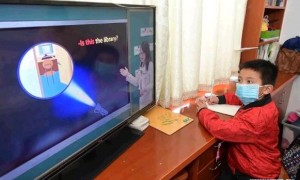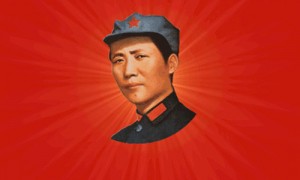Reciprocal arrangement to boost bilateral trade
Washington blames Beijing for its trade deficit, and criticizes China's steel exports, market environment, and restrictions on the entry of foreign capital into some industries. Beijing, on the other hand, is unhappy with US restrictions on the export of high-technology products to China, and the standards and lack of transparency of Washington's security review mechanism on foreign investment.
Steel overcapacity is a global concern. Yet the United States imposes anti-dumping and countervailing measures against Chinese steel products, with the tariff on some items being as high as 500 percent, which is nothing but trade protectionism.
Since all these issues could not be resolved at the US-China Comprehensive Economic Dialogue in Washington on July 19, the two countries need to deepen communication on trade issues, in order to reach a consensus on how to objectively view the trade imbalance and make coordinated efforts to gradually rebalance bilateral trade.
China can moderately increase the import of US agricultural products, if in return Washington lifts the restrictions on Chinese agricultural products. The reciprocal arrangement of the 100-Day Action Plan-the US exporting beef to China and China exporting chicken to the US-is a good example of how the two sides can strike a mutually beneficial deal.
Also, China wants to import more US high-tech products, for which Washington has to lift the restrictions on the sector as early as possible. To correct the imbalance in bilateral trade, China can also increase its investments in the US, but the US, in return, has to make its investment security review mechanism more open and transparent, and resume the talks on the bilateral investment treaty as soon as possible.
Moreover, China can consider opening up its service sector more expeditiously, and importing more oil and natural gas from the US. In return, however, the US has to create a favorable cooperative atmosphere.
Huo Jianguo, a researcher at the Center for China and Globalization and vice-chairman of the China Society for World Trade Organization Studies
onus on US to improve its position on supply chain
Since the US has had a trade deficit for four decades, the problem cannot be solved overnight. More importantly, urging China to reduce exports to the US will not reduce Washington's trade deficit.
The onus is on the US to take measures to improve its supply structure and quality, by loosening its control on the export of some special products, and increasing the volume of its energy and resource exports.
The US also has trade deficits with Germany, Mexico, Japan and some other countries. Yet the Trump administration hasn't decided whether it wants a strong or a weak dollar. A strong dollar will consolidate the US' leading role in the world economy, but also raise its trade deficit. A weak dollar, on the other hand, will help boost US exports, but at the same time weaken the economic status of the US.
Although the US can export a lot more oil and natural gas to countries such as China, it lacks the necessary infrastructure facilities to do so. For instance, its west coast doesn't have a port that can handle the export of natural gas. So, it should build such a port.
Hopefully, US President Donald Trump's anticipated visit to China will help resolve such issues and facilitate the stable development of bilateral economic and trade relations.
Lyu Xiang, a researcher at the Center for China and Globalization as well as the Chinese Academy of Social Sciences
Need to build a mutually beneficial mechanism
The US' overall trade deficit is the result of its position in the global supply chain, and thus cannot be erased by China. Last year, the computer and electronics sectors' share in the US' total trade deficit was 24 percent-more than $170 billion in actual terms, of which $144 billion was with China. But US imports of computers and electronics from China also include products, parts and services from Japan, the Republic of Korea, Germany, France and even the US itself.
To change its position on the supply chain, the US first needs to overhaul its industrial sector, as history shows using trade policies to solve trade imbalance has never succeeded. Little wonder the US-China Comprehensive Economic Dialogue couldn't achieve any breakthrough in this regard.
That the two sides will continue to hold such talks goes without saying, but the US could feel disappointed again if it insists on using such dialogues to resolve the trade deficit issue.
The World Trade Organization has processed 525 trade disputes in 22 years, among which 39 were against China and 130 against the US, mostly for violating WTO rules, granting unreasonable subsidies, unfair competition, and abuse of trade restrictions.
According to the WTO, the US' trade restrictive measures against the other G20 member countries in the first five months of this year increased by 26 percent year-on-year, while similar measures taken by the other G20 members against the US declined by 29 percent. This makes it obvious the US has become an obstacle to fair trade.
Sino-US trade therefore should focus more on investment, technology, research and development, finance, service trade, protection of intellectual property rights, law, culture, tourism and the joint development of other markets, and building a comprehensive, stable and mutually beneficial mechanism.
He Weiwen, a researcher at the Center for China and Globalization, and former commercial councilor at China's Consulate Generals in San Francisco and New York







